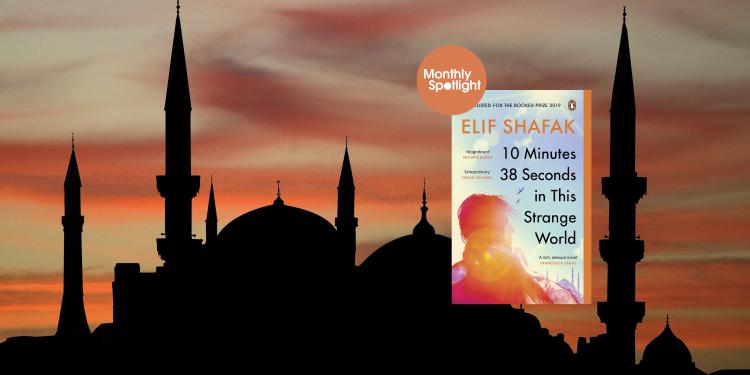There was so much she wanted to know. In her mind she kept replaying the last moments of her life, asking herself where things had gone wrong – a futile exercise since time could not be unrav- elled as though it were a ball of yarn. Her skin was already turning greyish-white, even though her cells were still abuzz with activity. She could not help but notice that there was a great deal happening inside her organs and limbs. People always assumed that a corpse was no more alive than a fallen tree or a hollow stump, devoid of consciousness. But given half a chance, Leila would have testified that, on the contrary, a corpse was brimming with life. She could not believe that her mortal existence was over and done with. Only the day before she had crossed the neighbourhood of Pera, her shadow gliding along streets named after military lead- ers and national heroes, streets named after men. Just that week her laughter had echoed in the low-ceilinged taverns of Galata and Kurtulush, and the small, stuffy dens of Tophane, none of which ever appeared in travel guides or on tourist maps. The Istanbul that Leila had known was not the Istanbul that the Ministry of Tourism would have wanted foreigners to see. Last night she had left her fingerprints on a whisky glass, and a trace of her perfume – Paloma Picasso, a birthday present from her friends – on the silk scarf she had tossed aside on the bed of a stranger, in the top-floor suite of a luxury hotel. In the sky high above, a sliver of yesterday’s moon was visible, bright and unreach- able, like the vestige of a happy memory. She was still part of this world, and there was still life inside her, so how could she be gone? How could she be no more, as though she were a dream that fades at the first hint of daylight? Only a few hours ago she was singing, smoking, swearing, thinking … well, even now she was thinking. It was remarkable that her mind was working at full tilt – though who knew for how long. She wished she could go back and tell everyone that the dead did not die instantly, that they could, in fact, continue to reflect on things, including their own demise. People would be scared if they learned this, she reckoned. She cer- tainly would have been when she was alive. But she felt it was important that they knew.








